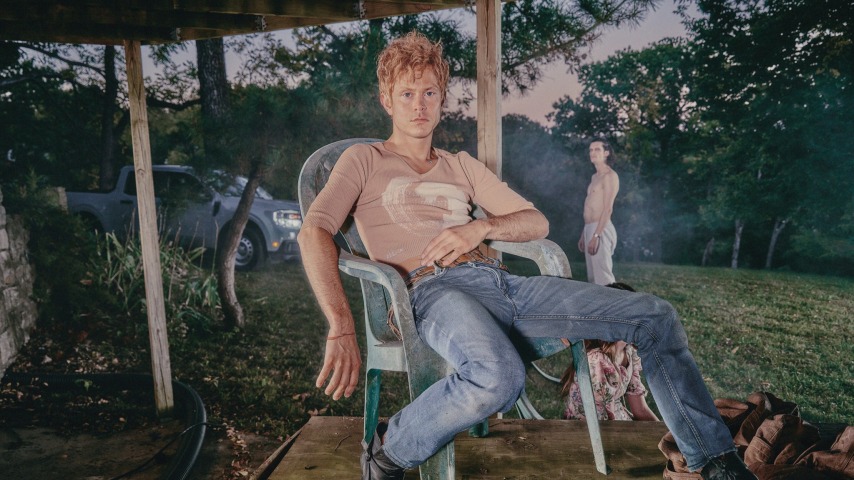The frequent incongruence between Hadreas’ vocals and the music happening around them is intentional. Time is a major concern, and it’s the melodies that often keep a stable pace, not the production. This is made most explicit on “Clean Heart,” a gorgeous song that tracks time in terms of distance. The period after heartbreak can be measured in miles, or it can pull you downstream and drown you. Jim Keltner’s percussion work, the thing usually keeping time, stutters and flickers. In the turbulence, it’s the voice that you can cling to, leaving the impression of someone counting to ten—perhaps multiple times—to calm himself during a fit of anxiety. Pat Kelly’s frenetic, baroque bass work on “Left For Tomorrow” functions similarly, destabilizing and filling the space of the absence Hadreas anticipates while considering the inevitable death of his mother: “The other end is just heavy breathing / I bury the phone in clover.”
Hadreas’ lyrics are evocative in their scalpel-like precision, though the images they create are more impressionistic. “Capezio,” a ghostly scene compressed into sparse bars, suggests some uneasy filmed moment featuring a woman in ballet shoes and a man named Jason, who may or may not have appeared in a different vignette in 2020. The centerpiece of the album, the absolutely stunning “Full On,” conjures an injured athlete, a paragon of suburban American masculinity without his strength. “I saw every quarterback crying / folded on my lap and counting out the damage done,” Hadreas wails while strumming guitars and whistling flutes conjure both fairy tales and funeral marches. Glory‘s songs are less storytelling than moment sharing. Often, they’re moments that feel impossibly personal, turning us into voyeurs for listening.
An exception to this is “In A Row,” a darkly funny episode that explicitly depicts someone kidnapped and transported in the trunk of a car. It’s not just the frankness of the internal monologue (“This whole thing is so extra / So bizarre”) but the impulse to turn the trauma into something, be it art or content, that is unfortunately recognizable. “Take me the long way round / Think of all the poems I’ll get out,” our narrator says, triumphant. This is the mind of a character who waits for things to happen to them, rather than one who makes things happen. As horrible as that can be, there’s also a romance to knowing that those things are happening to you. “Me & Angel” portrays the period of love where the other person seems totally perfect, leaving you feeling almost unworthy of the situation. This track, a straightforward 1970s piano ballad, finds Hadreas singing as the supporting role in his own relationship; it’s a beautiful, if unsustainable, infatuation.
Perhaps nothing is sustainable, at least not forever. But a ticking clock doesn’t need to be a threat; it can just be a beat. Glory opens sunny and wide and gradually darkens, and it’s not without fear of the future. The closing track, “Glory,” is almost a hymn, but there is an electronic creeping in the backdrop that won’t go away, and it resolves by finding shade. Peace may be elusive, but finding it is a worthy pursuit on its own.

 Keep scrolling for more great stories.
Keep scrolling for more great stories.
